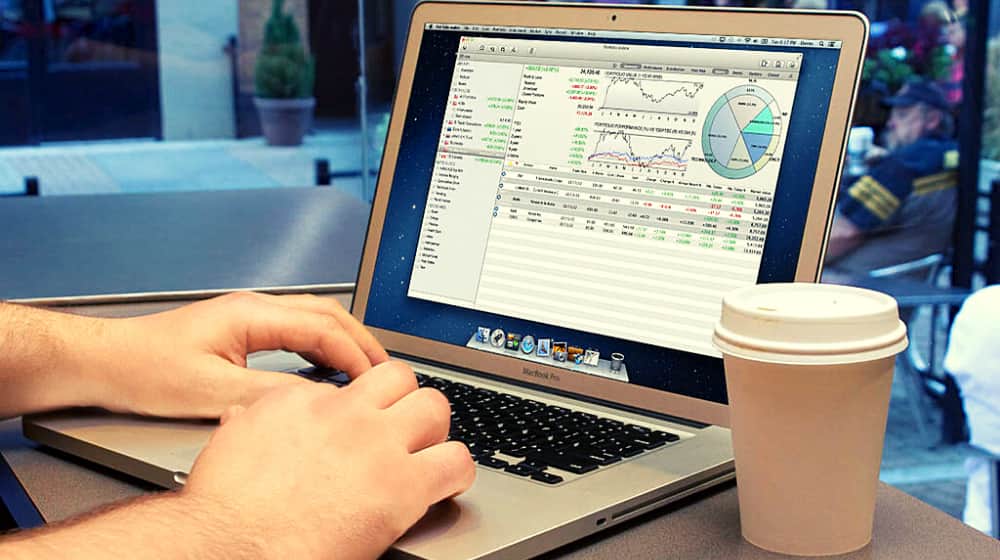Breaking News
Will This Be Worse than 2008?

The world is watching global markets for clues into how the pandemic will affect the economy. The US stock market has experienced incredible volatility, flying up and down on the latest headline.
Let’s take a look at what those numbers, like the Dow Jones, are actually based on, and why Americans with a stake in the market should considering pulling out for now.
How Stocks Are Valued
Everyone knows that the stock market goes up when the economy does well, and goes down when things get rough. The reverse is also true, since the stock market, to some extent, reflects the general sentiment about how things will look in the future. People and businesses take their cues from it. If the market tanks, companies may hire less people, and consumers may start saving more of their money. For this reason, many simply view the stock market as a sort of economic thermometer.
However, the stock market also has real, tangible value. It’s based on the biggest US companies’ expected earnings, both now and indefinitely into the future. If Apple is valued at $200, that means that the market expects that single share to generate $200 of income over its life, adjusted for inflation and the risk of owning it.
Ultimately, stocks tank or soar when there’s a major adjustment to what the market expects corporate profits to look like in the near to medium term.
Pandemic fears have wiped out $3.4 trillion from the S&P 500 in just six trading days. And more losses are in store on Friday. US stocks are on pace for their worst week since the 2008 financial crisis. https://t.co/N4ItyzSjBy
— CNN (@CNN) February 28, 2020
Why Stocks Tanked in 2008
We know what happened in the 2008 financial crisis. Bad mortgage bets, disguised as high quality assets, tanked the global economy. Homes lost value and a lot of people foreclosed, but the reason it ultimately wrecked the whole economy was a question of liquidity, or access to cash. Banks were going under, so there was no capital available for businesses or people.
Risk appetite was literally zero for all lenders. That means companies couldn't raise funds by selling shares or borrowing money, which means they couldn't invest in their businesses or hire people. People were quickly becoming unemployed, and those with extra cash stashed it rather than spend it.
This led to terrible corporate profits in that year in 2008, forcing the stock market to make a huge adjustment to what future earnings would look like. Stocks tanked, and as the economy slowly recovered, profits and stock valuations did too.
The Bull Market and the Trump Bump
When Obama was dropping his mic and saying goodbye to the White House, valuations were around where they are now. The bull market was already 6 years old, and many thought that valuations were already too high.
Then Donald Trump proved to be the most business-friendly president in recent memory, perhaps in US history.
He slashed corporate taxes, pressured the Fed to keep interest rates low, and made American businesses and households feel very confident that their tummies would stay fat. Corporate profits have grown, but the stock market increase was mostly driven by the expectation of future earnings growth.
Global stocks post worst quarter since 2008 financial crisis as Covid-19 worsens in US The first quarter of 2020 has ended bringing volatility to global equity markets, with stocks in Europe and Asia… – https://t.co/Fr9zn4416j #trading pic.twitter.com/Ekfuw3JSEr
— inter_mkt (@inter_mkt) April 2, 2020
COVID-19: We’re Hosed For Now
This market has been driven by the expectation that corporate earnings will keep shooting up. In 2020 at least, they’ll see a major drop.
It's safe to say that 2020 will be the worse year for corporate earnings since the recession, and may well be the worst. This is why the Dow Jones’ drop was so dramatic. Stock valuations (expectations about future corporate earnings) had never been higher, and now a huge wrench has been thrown in those expectations.
The US, and the rest of the world, is heading into a recession. The US has experienced hyper growth since 2016. Now, 40% of Americans are on lockdown.
This is why the US government reacted last night by injecting two trillion dollars into the economy, which is more than double the stimulus package after the last financial crisis. A recession is totally unavoidable, at least in the first half of this year.
The virus will likely challenge the country for most of 2020, and the economic ripple effects will last longer. Many Americans will lose their jobs, and business sentiment and consumer spending will certainly fall. In 2008, it was about not affording a new phone, or not wanting to spend extra cash on going to the movies. In 2020, it’s about not being able to leave your house.
During this time of great uncertainty regarding both the duration and intensity of this crisis, the smartest move is to pull your chips and watch the table for a while.
Featured Image by OTA Photos/Flickr












